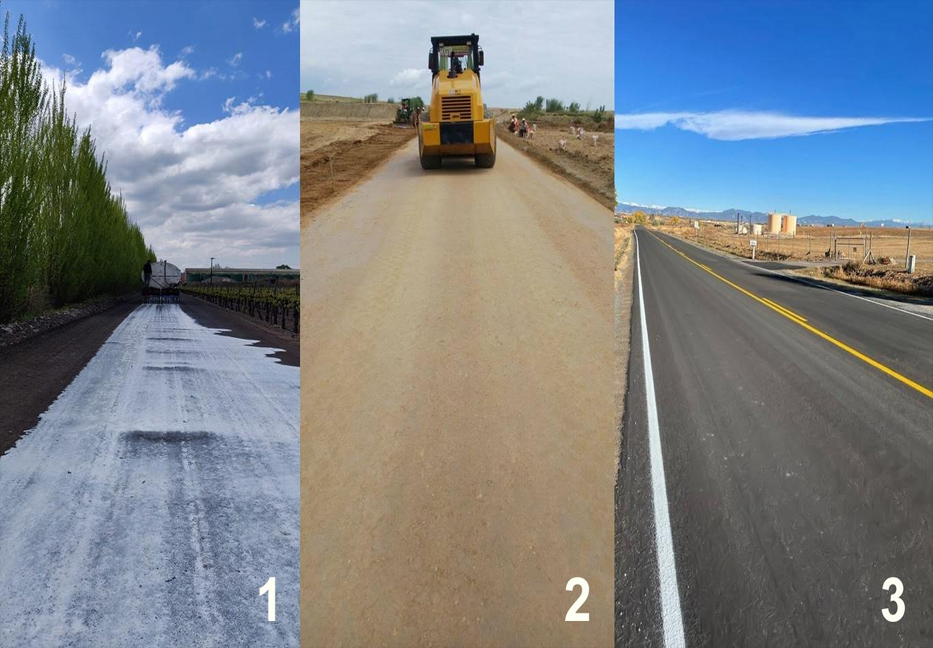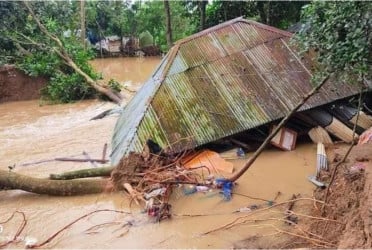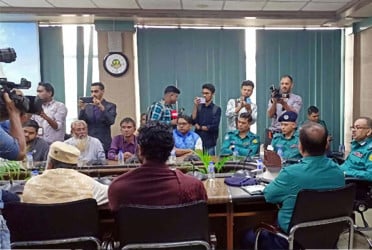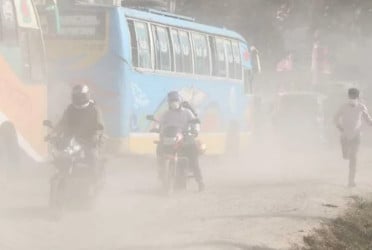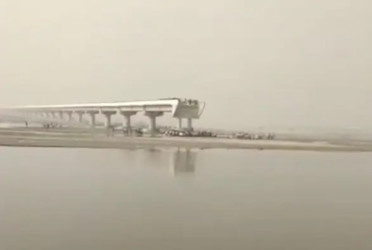The government is going to take a pilot project where it will use nanotechnology in construction of roads for ensuring road safety as part of implementing its Sustainable Development Goals (SDGs) by 2030, reports BSS.
Under the project, the government will use "acrylic polymer", a state of art in echo-friendly nanotechnology product, to reduce roads construction costs by at least 30 percent as well as ensuring safer roads more than the conventional ones.
Talking to BSS recently, Additional Chief Engineer of the Roads and Highways Department (RHD) Fazle Rabbe said as per the instructions of Road Transport and Highways Division, RHD is preparing a Development Project Performa (DPP) for the project.
"We have selected four areas in Sylhet division to construct roads by using the nanotech based chemical which will drastically minimize time and cost in constructing durable roads and highways. The new technology is going to open a new horizon for the country's fast growing communication sector," he added.
He said the initiative will also contribute to two SDG targets that address road safety: SDG target 3.6 on halving the number of global deaths and injuries from road traffic accidents; and SDG target 11.2 on providing access to safe, affordable, accessible and sustainable transport systems as well as improve road safety.
Rabbe said an initial study by an expert group came up with a conclusion that the technology was suitable for soil of any type across Bangladesh and it would reduce roads construction cost by at least 30 percent.
Earlier, a six-member expert team ran a field test of the acrylic polymer at Matarbari area of Cox's Bazar's Maheshkhali area and found it "highly effective".
They had collected soil from 22 districts of different regions of the country and tested them in different ratios with K.31 APS acrylic polymer and the findings suggested it suits all types of soil in Bangladesh.
They also carried out a financial analysis and found it to be highly cost effective as well. The technology is also highly sustainable for those roads which go frequently under water and stay under water for long days.
The use of acrylic polymer will ensure that there will be no potholes in roads even in rainy season and it will minimize road accidents. It will also increase the longevity of vehicles due to smooth roads.
Rabbe said like plastics the "water resistant" acrylic polymer is "nearly imperishable" which would simultaneously increase load bearing capacity of roads.
"So we expect it will enhance sustainability of our roads by at least 50 years and thus minimize their maintenance cost to a minimal level," the RHD official said.
Several infrastructure experts said the technology by now came within Bangladesh's reach and it could be used also to construct dams and embankments at much lower costs in quicker periods.
RHD Executive Engineer Md Shahriar Rumi said the acrylic polymer is currently being used in the United States, Canada, Australia, Malaysia and several Middle Eastern countries while India and Bhutan also started using it for road constructions.
The Indian army successfully used the K.31 APS brand of acrylic polymer in rugged Ladakh region of Kashmir, while the United States marine forces first developed the product to be used subsequently by US military and air force in their country and elsewhere, he informed.
Explaining the technique, Rumi said in traditional method bricks and stone chips are used as main ingredient construct the road base and road sub-base but the use of acrylic polymer would make these major elements redundant.
Bd-pratidin English/Lutful Hoque

